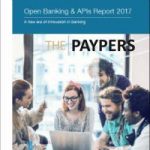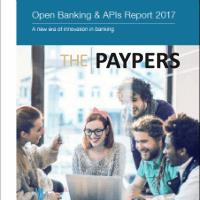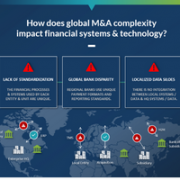PSD2: The Disruption and Innovation of Open Banking
| 11-8-2017 | treasuryXL | The Paypers |
 PSD2 is a recurring topic which is of great concern to financial institutions and other payment service providers, as well as finance professionals at corporates all over the world. We read an interesting article about the disruption and innovation of open banking at The Paypers and want to share it with you. The article is part of the Open Banking & APIs Report 2017, aimed to provide necessary insights to help readers understand the latest developments on the topic, as well as practical examples and best practices in Open Banking. Alisdair Faulkner of ThreatMetrix states that innovation, enhanced security and the drive for greater competition are the golden triptychs at the heart of PSD2.
PSD2 is a recurring topic which is of great concern to financial institutions and other payment service providers, as well as finance professionals at corporates all over the world. We read an interesting article about the disruption and innovation of open banking at The Paypers and want to share it with you. The article is part of the Open Banking & APIs Report 2017, aimed to provide necessary insights to help readers understand the latest developments on the topic, as well as practical examples and best practices in Open Banking. Alisdair Faulkner of ThreatMetrix states that innovation, enhanced security and the drive for greater competition are the golden triptychs at the heart of PSD2.
PSD2: Game changer, opportunity and challenge
PSD2 is a game changer for digital payments and commerce in Europe and will have a significant global impact. It requires financial institutions to make changes to their platforms and systems, while making strategic decisions on how they want to play going forward. These changes will require significant investment as well as a strategic shift, as banks are forced to consider how they can safely open their banking platforms to external third parties. While this may negatively impact the revenue of large banks, it can also level the playing field for smaller fintechs, as well as provide opportunity for new product innovations.
Not only do banks and other PSPs need to work toward compliance, but they also need to define their strategy to position themselves competitively in the market. They will also need to align the somewhat competing demands of rapid innovation while maintaining vigilant security as the cybercrime war continues to rage.
Innovation and Disruption
Digital transactions have had a huge impact on the evolution of the fintech industry as niche products and services have emerged to fill the crevasses left by larger financial institutions. These include services for the unbanked and underbanked, instant insurance, crowdfunded loans and global online remittance. Fintech operators have been able to rapidly innovate for many reasons: a lack of legacy back end systems, lower regulations and less online scrutiny, for example. On the other hand, large financial institutions have unwittingly become the enablers with minimal benefit.
However, PSD2 and Open Banking regulations are set to create more opportunities as both financial institutions and new providers compete to drive smarter revenue from payments. With open banking, the financial institutions would be increasingly at risk of losing their direct relationship with the customer and becoming a back end utility. On the other hand, new providers could emerge, enabling customers to access their banking services from a common portal, without having to ever log into their bank. These portals may also enable the customer to get services à la carte from a menu of banks. As such, businesses are contemplating the path forward as they wait for new payment platforms and ecosystems that lead to new business models to emerge. It will be critical for established providers to decide how to take advantage of the opportunity and not be left behind.
What are the threats and possible solutions to navigate the future according to Alisdair Faulkner?
Please read more by referring to the original article on The Paypers.









